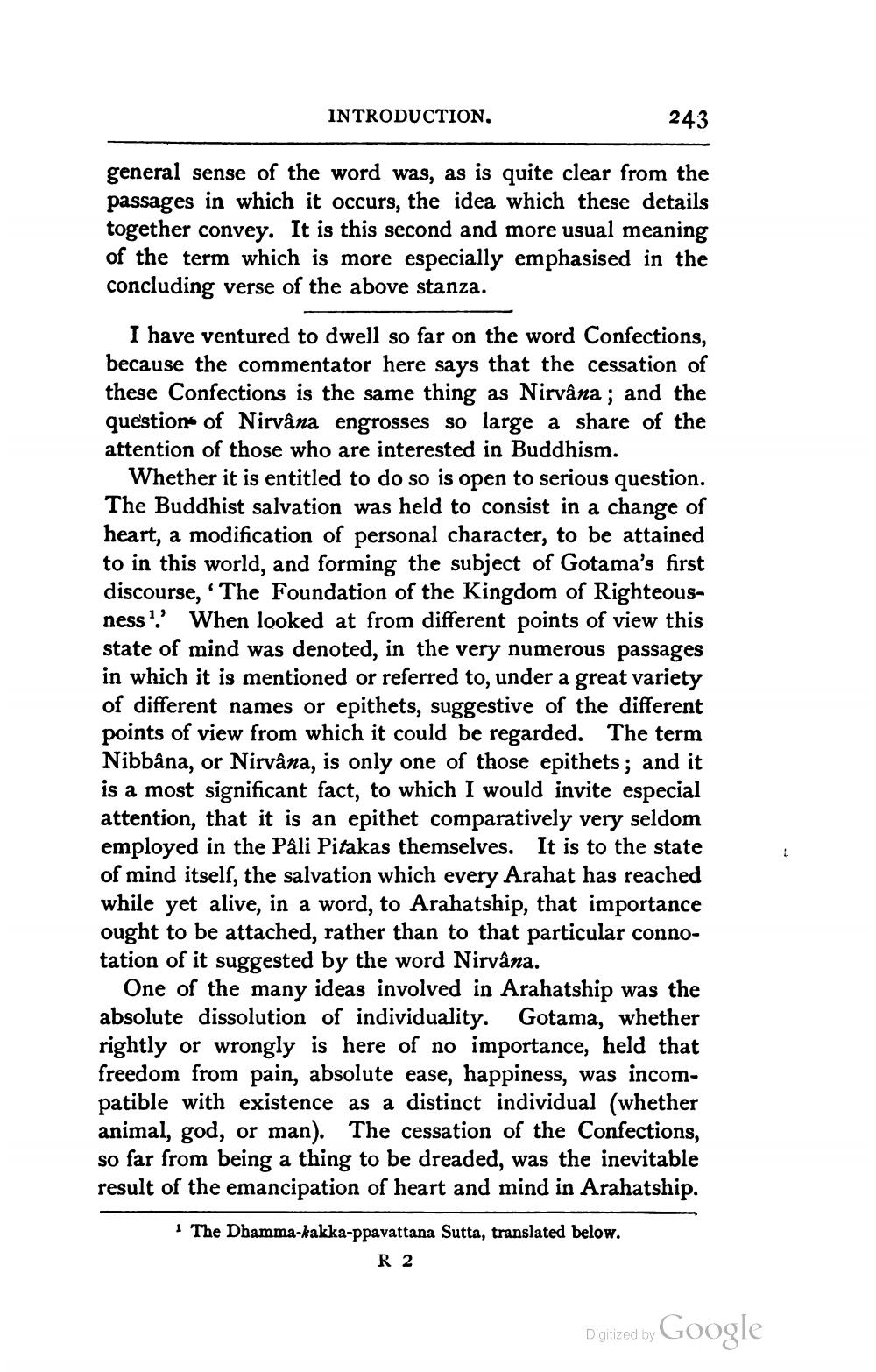________________
243
general sense of the word was, as is quite clear from the passages in which it occurs, the idea which these details together convey. It is this second and more usual meaning of the term which is more especially emphasised in the concluding verse of the above stanza.
INTRODUCTION.
I have ventured to dwell so far on the word Confections, because the commentator here says that the cessation of these Confections is the same thing as Nirvâna; and the question of Nirvâna engrosses so large a share of the attention of those who are interested in Buddhism.
Whether it is entitled to do so is open to serious question. The Buddhist salvation was held to consist in a change of heart, a modification of personal character, to be attained to in this world, and forming the subject of Gotama's first discourse, 'The Foundation of the Kingdom of Righteousness'.' When looked at from different points of view this state of mind was denoted, in the very numerous passages in which it is mentioned or referred to, under a great variety of different names or epithets, suggestive of the different points of view from which it could be regarded. The term Nibbâna, or Nirvâna, is only one of those epithets; and it is a most significant fact, to which I would invite especial attention, that it is an epithet comparatively very seldom employed in the Pâli Pitakas themselves. It is to the state of mind itself, the salvation which every Arahat has reached while yet alive, in a word, to Arahatship, that importance ought to be attached, rather than to that particular connotation of it suggested by the word Nirvana.
One of the many ideas involved in Arahatship was the absolute dissolution of individuality. Gotama, whether rightly or wrongly is here of no importance, held that freedom from pain, absolute ease, happiness, was incompatible with existence as a distinct individual (whether animal, god, or man). The cessation of the Confections, so far from being a thing to be dreaded, was the inevitable result of the emancipation of heart and mind in Arahatship.
1 The Dhamma-kakka-ppavattana Sutta, translated below.
R 2
Google
Digitized by




